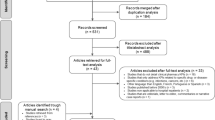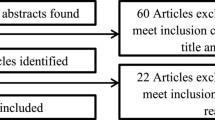Summary
Many American healthcare facilities have come to understand that quality controls cost. Clinical practice improvement (CPI) is a methodology that creates a clinical laboratory, built into the everyday practice setting, to find and test best practices. A CPI study is an analysis of the content and timing of individual steps in a medical care process aimed at producing better clinical outcomes for the least necessary cost over the continuum of a patient’s care. Statistical regression analyses are used to determine whether and how much a particular step actually improves medical outcomes. Systematic determination of individual process steps that improve medical outcomes is the best way to develop demonstrably better care and practice. Combining CPI methodology and a data monitor creates a dynamic environment in which all patient encounters potentially contribute to improving the process of care. We describe a recent multisite study: the Managed Care Outcomes Project (MCOP). The MCOP study design permits us to compare the effects of various pharmaceutical treatments on resource utilisation in actual practice in managed-care organisations. The MCOP database is an important resource for developing information required to design systems-based disease management programmes.
Similar content being viewed by others
References
Clinical Practice Improvement. A new technology for developing cost-effective quality health care. SD Horn, DSP Hopkins, editors. New York: Faulkner and Gray, May 1994
Horn SD, Sharkey PD, Tracy DM, et al. Intended and unintended consequences of HMO cost containment strategies: results from the Managed Care Outcomes Project. Am J Managed Care 1996; 2: 253–64
Horn SD, Sharkey PD, Gassaway J. Managed Care Outcomes Project: study design, baseline patient characteristics, and outcome measures. Am J Managed Care 1996; 2: 237–47
Author information
Authors and Affiliations
Rights and permissions
About this article
Cite this article
Horn, S.D. The Clinical Practice Improvement (CPI) Model and How it Is Used to Examine the Availability of Pharmaceuticals and the Utilisation of Ambulatory Healthcare Services in HMOs. PharmacoEconomics 10 (Suppl 2), 50–55 (1996). https://doi.org/10.2165/00019053-199600102-00009
Published:
Issue Date:
DOI: https://doi.org/10.2165/00019053-199600102-00009




